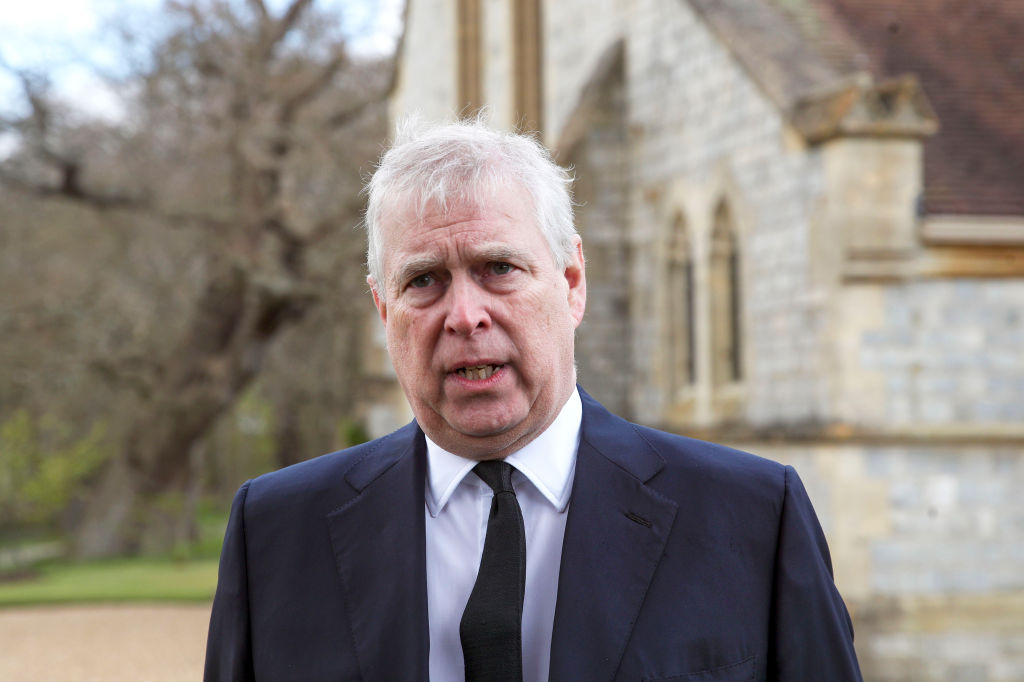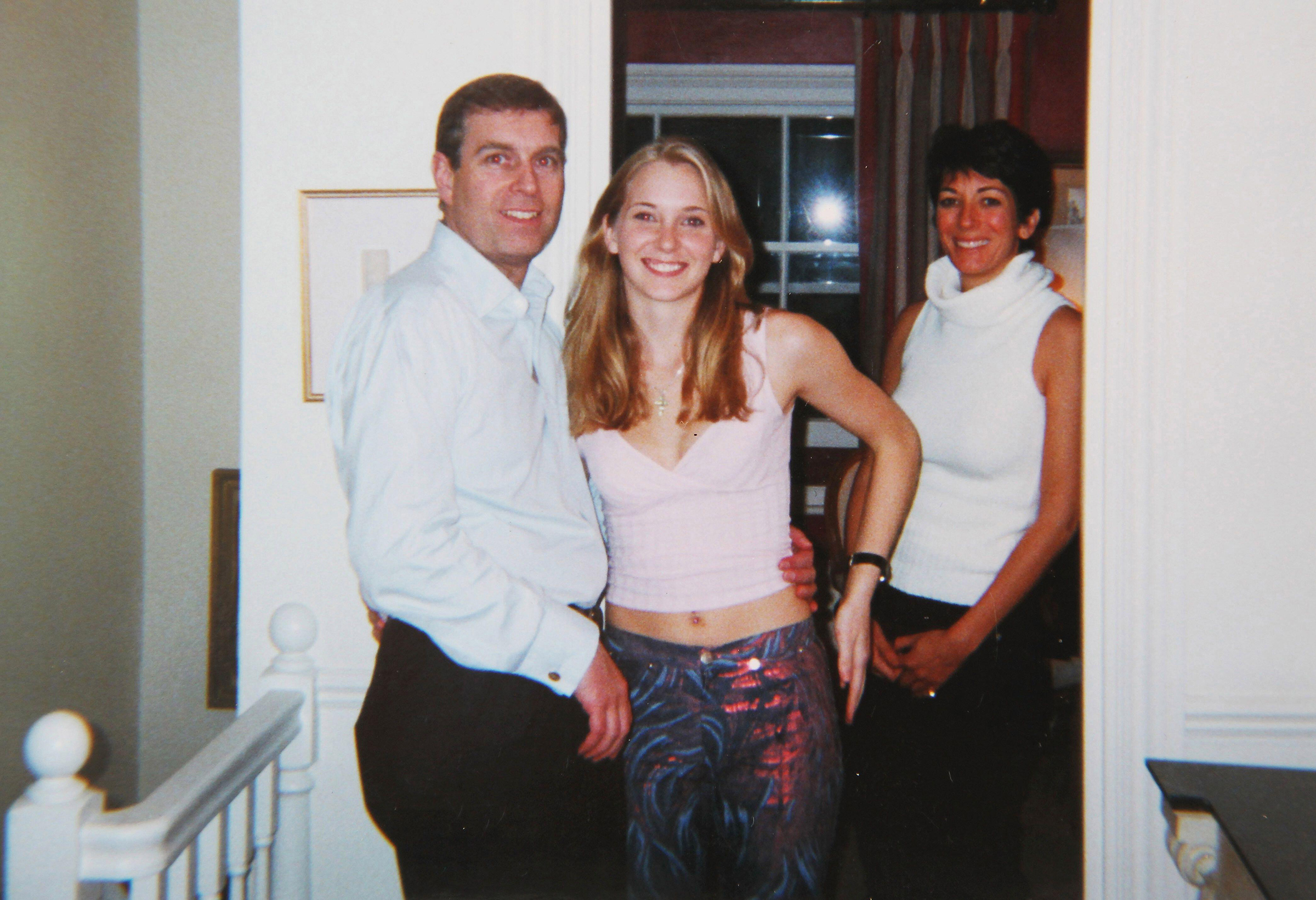
Prince Andrew, Queen Elizabeth’s second son, faces a civil lawsuit in the U.S. for allegations of sexual abuse. The claimant, Virginia Giuffre, is a victim of the late billionaire and convicted sex offender Jeffrey Epstein, with whom Andrew formed a friendship. The Prince has said the allegations are completely false.
Here’s what you need to know about the charges, and whether Andrew will be extradited to the U.S. to face justice:
What is Prince Andrew accused of?
In a 15-page civil lawsuit filed by Giuffre at the U.S. District Court in Manhattan on Aug. 9, Prince Andrew is accused of “sexual assault and battery” against Giuffre in 2001 when she was aged 17. In 2009, Giuffre first alleged she was groomed by Jeffrey Epstein and his then-girlfriend, British socialite Ghislaine Maxwell. She claims the pair abused her and forced her into sex with powerful men.
According to Giuffre’s lawyers, Epstein and Maxwell ordered her to have sex with Prince Andrew, the Duke of York. He allegedly sexually assaulted her three times, once in London, again in New York, and a third time on Epstein’s private island in the U.S. Virgin Islands. During an interview with the BBC in 2019, Giuffre described being introduced to the Prince by Epstein and Maxwell in 2001. Maxwell allegedly told Giuffre to “do for Andrew what I do for Jeffrey.” Maxwell has denied all allegations.
On the second occasion, Giuffre’s lawyers say Andrew sexually abused her at Epstein’s New York mansion, touching her and engaging her in sex acts against her will. They also argue that Giuffre was compelled to do what Andrew wanted under threats of violence. The emotional impact of the abuse on Giuffre, the lawyers say, is “severe” and “long lasting”.
Giuffre alleges the Prince knew her age and that she was a victim of sex-trafficking at the hands of Epstein and Maxwell.
Giuffre is suing Andrew under New York’s Child Victims Act, a 2019 law allowing victims of childhood sexual to pursue compensation for abuse which happened too long ago for criminal charges to be brought. She is seeking unspecified damages.
Prince Andrew acknowledged that he served with the suit as of Sept. 21. He has until Oct. 29 to formally respond.
How has Prince Andrew responded?
Prince Andrew has denied all allegations against him. In 2019, he laid out his defense in an interview with the BBC, claiming he does not even remember meeting Giuffre and that he was with his daughter, Princess Beatrice, on the night Giuffre says they met in London.
However, the Prince has been unable to explain a photograph appearing to show him with his arm around a 17-year-old Giuffre, with Maxwell appearing in the background. In 2019 unidentified “sources close to” Andrew told British newspapers the Daily Telegraph and the London Evening Standard there were signs the photograph was inauthentic—a claim refuted by Giuffre’s lawyers.

Andrew’s lawyers argue that an agreement made by Giuffre when she settled a damages claim against Epstein in 2009 to not sue anyone else connected to Epstein “releases the duke and others from any all potential liability.” Giuffre’s lawyers agreed to release sealed documents detailing the agreement between Giuffre and Epstein, but claim they are “irrelevant” to the civil case.
What was Prince Andrew’s relationship to Jeffrey Epstein and Ghislaine Maxwell?
In the BBC interview, Prince Andrew said his friendship with Maxwell dated back to her time at university in the U.K., but claimed “it would be a stretch to say [they] were close friends.” He said he later met her then-boyfriend Epstein in 1999, but he “didn’t have much time with him.”
“I suppose I saw him once or twice a year”, Andrew said. “Perhaps maybe maximum of three times a year and quite often if I was in the United States”.
Read more: How the #MeToo Movement Helped Make New Charges Against Jeffrey Epstein Possible
The Prince invited Maxwell to Windsor Castle in 2000, who brought Epstein as her “plus one”, and to Queen Elizabeth’s Sandringham estate for a shooting weekend in the same year.
Prince Andrew admitted he had travelled on Epstein’s private plane, visited his private island, stayed at his homes in Palm Beach and New York, and at Maxwell’s home in London. While they were not very close friends, the Prince said he trusted Epstein and was interested in his knowledge of the international business world.
Epstein first faced allegations of sexual abuse of minors in 2005 and he was arrested in July 2006. That month, Maxwell and Epstein were invited to Windsor Castle for Andrew’s daughter’s 18th birthday. Andrew said he was not aware of the allegations at the time and didn’t become aware until later in the year, when he cut contact. Epstein was jailed from 2008 to 2010. Months after he was released, the Prince went to stay at his New York mansion, which Andrew claims was to formally end the friendship.
In 2019, after facing over 20 civil cases, Epstein was arrested on sex trafficking charges. While awaiting trial, he was found unresponsive in his cell from a suicide attempt and later died.
Maxwell was arrested in July 2020 on charges of recruiting and grooming Epstein’s underage victims. She has pleaded not guilty and is awaiting trial in a New York jail.
What has the impact been on Prince Andrew?
The royals already seem to be distancing themselves from the Prince—the Times of London was told by an unidentified source that Andrew is bringing “unwelcome reputational damage” and poses a “threat” to the crown. However, the Daily Telegraph reported on Oct. 1 that the Queen was privately funding Andrew’s legal defense.
Andrew’s 2019 BBC interview responding to the allegations was a PR disaster for the royal family. Just a day after the television appearance, the Queen’s “favorite” son announced he was stepping back from royal duties. He said he was “willing to help any appropriate law enforcement agency with their investigation, if required.”
Despite this, a U.S. prosecutor has accused Andrew of providing “zero cooperation” with the investigators of the Epstein criminal case, and Giuffre’s lawyers say Andrew has “stonewalled” their requests for information as part of the suit.
What have the British police said?
The Metropolitan Police in London initially chose not to look into Giuffre’s trafficking claims against Epstein, but in light of the civil case against Prince Andrew, the force decided to review the claims. “No one is above the law”, said Dame Cressida Dick, the Met Police Commissioner.
On Oct. 11, however, the force decided to take no further action on the allegations made against the Prince and Epstein’s sex trafficking ring in the U.K.
Can Prince Andrew be extradited to the U.S. to face charges?
Not for this case. The lawsuit served against Prince Andrew by Giuffre is a civil case—the Prince does not face criminal charges so cannot be extradited to the U.S.
According to Ben Brandon, a British lawyer specializing in extradition, Andrew could theoretically be charged with contempt of court in the U.S. if he was ordered to pay Giuffre compensation, and refused. However, Brandon explained “any judgement debt would be in the U.S., and they would have to bring separate proceedings in the U.K. to enforce [it]”. Moreover, contempt of court is not an extradition offense.
However, anything that comes up in the civil case could be used in a future criminal case, which still presents a risk to Andrew. Despite the statute of limitations, which only allows charges to be brought within five years of an alleged crime, the Prince could still be charged for alleged crimes committed in 2001. According to Arkday Bukh, a criminal defense attorney, “the statute of limitation is ticking only while [the subject is] within the jurisdictional borders of the district.”
And sexual assault is an extradition offense, even at state level. The test for whether an offense is “an extradition crime” is based on the “alleged conduct” of the accused, Brandon explained. It also depends on whether or not it would also be considered a crime in the country from which the accused is extradited. In theory, Andrew could be extradited to the U.S. if he was charged with sexual assault, because the crime is equally serious in the U.K.
Would the U.K. ever let that happen?
In such a high profile case, extraditing Prince Andrew could cause friction in the special relationship between the U.S. and U.K. But so would intervention by the British government or royal family. “Legally speaking,” Brandon explained, “the decision as to whether to extradite is not exclusively, but in almost every respect, taken by a court rather than the Secretary of State.” However, whether senior lawmakers would work behind the scenes to smooth over diplomatic rifts is a “different matter entirely,” he said. (Brandon points to former British Prime Minister Tony Blair’s role in terminating a corruption investigation into arms dealer BAE Systems following pressure from the Saudi government.)
Correction, Oct. 21
The original version of this story mischaracterized Ghislaine Maxwell. She is a British socialite, not a socialist.
More Must-Reads from TIME
- Cybersecurity Experts Are Sounding the Alarm on DOGE
- Meet the 2025 Women of the Year
- The Harsh Truth About Disability Inclusion
- Why Do More Young Adults Have Cancer?
- Colman Domingo Leads With Radical Love
- How to Get Better at Doing Things Alone
- Michelle Zauner Stares Down the Darkness
Contact us at letters@time.com